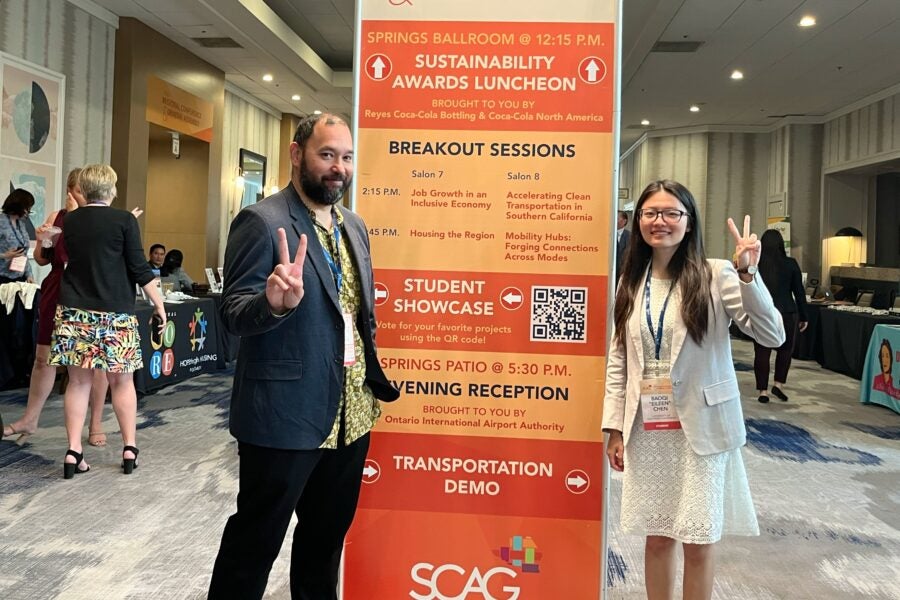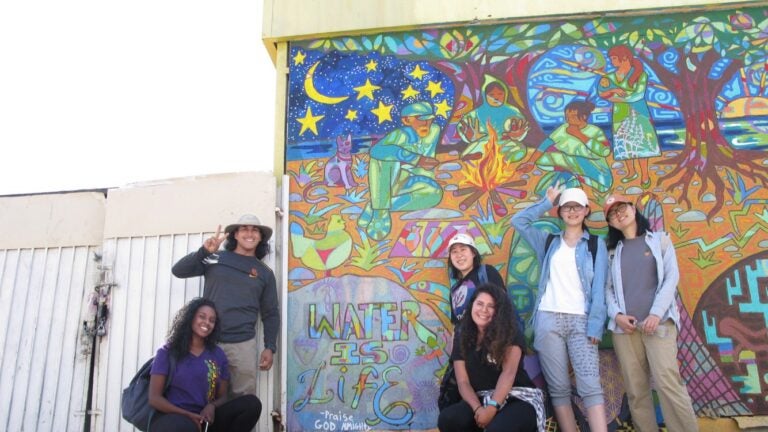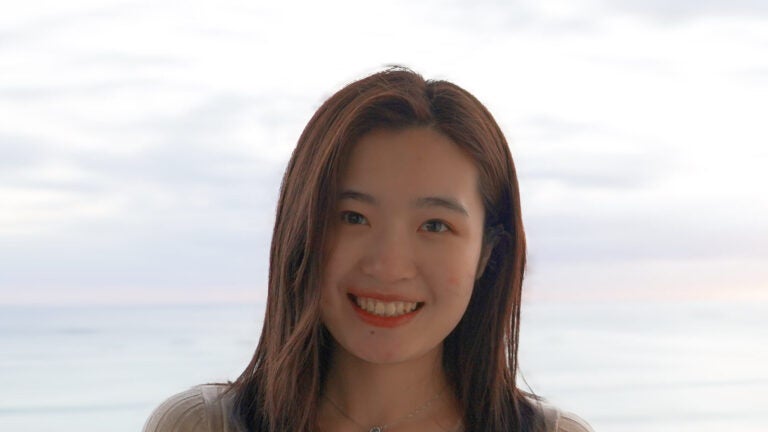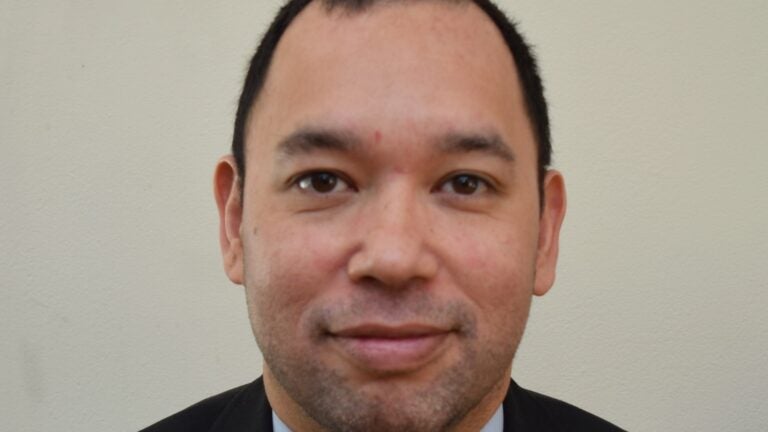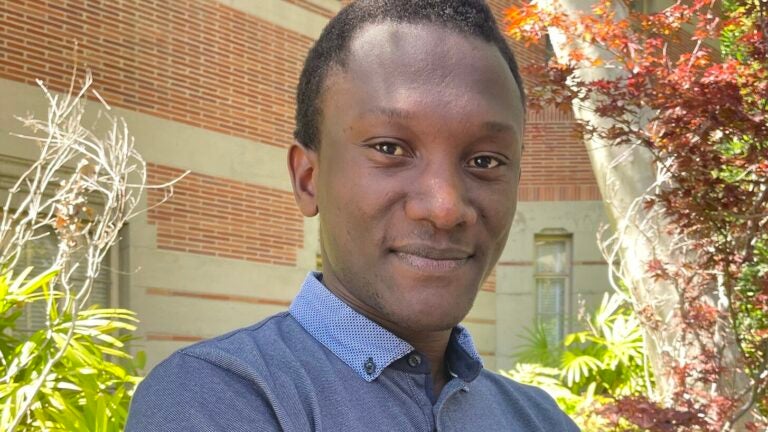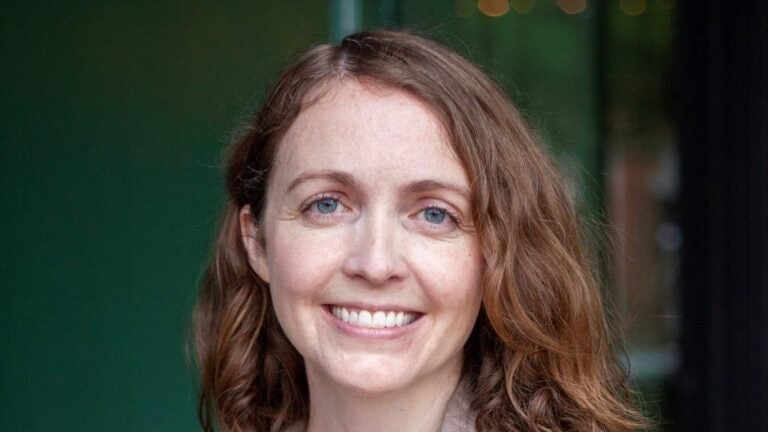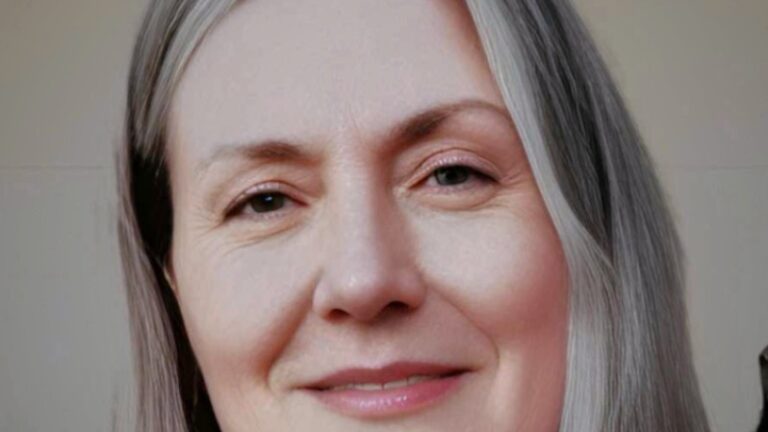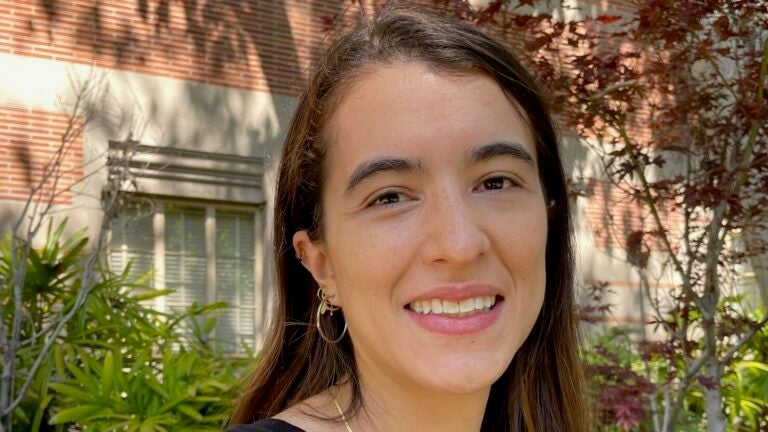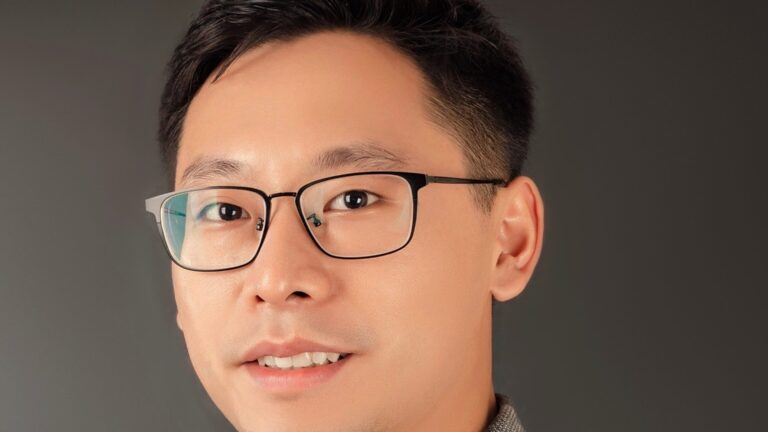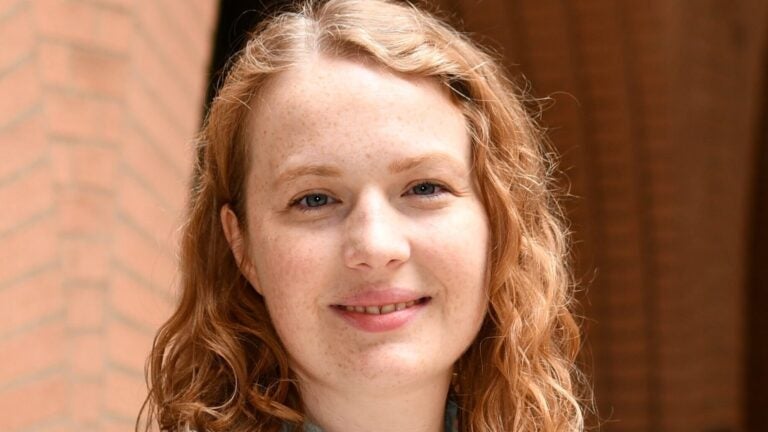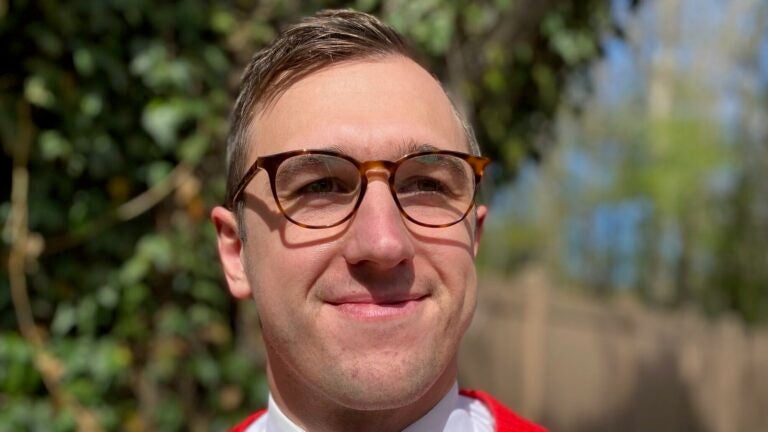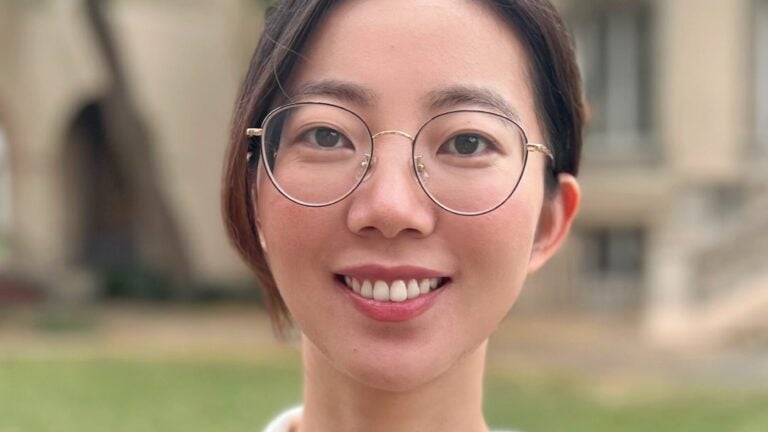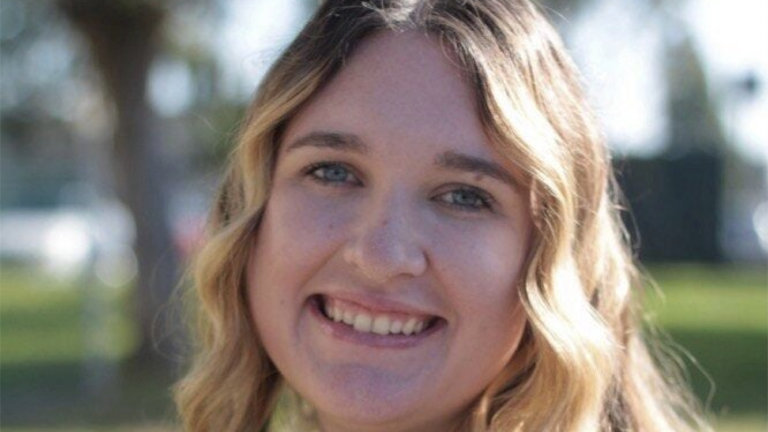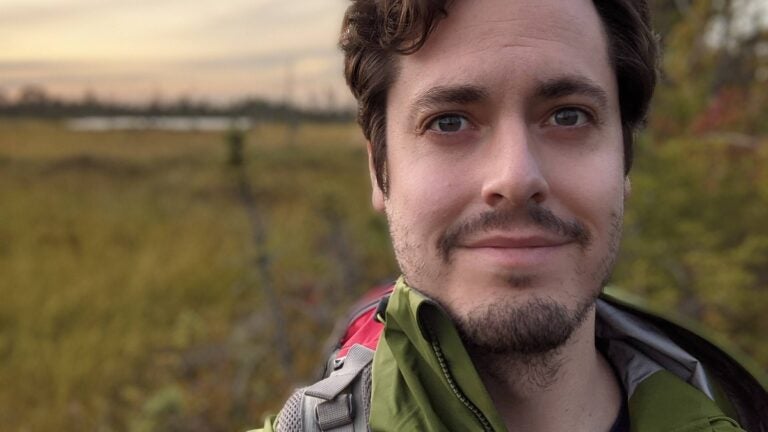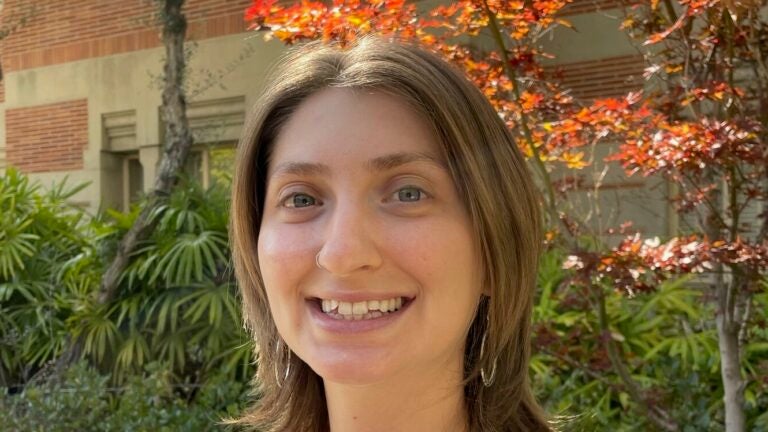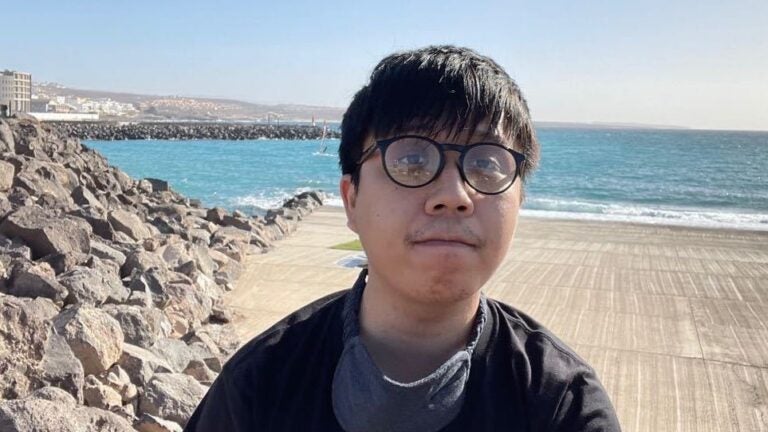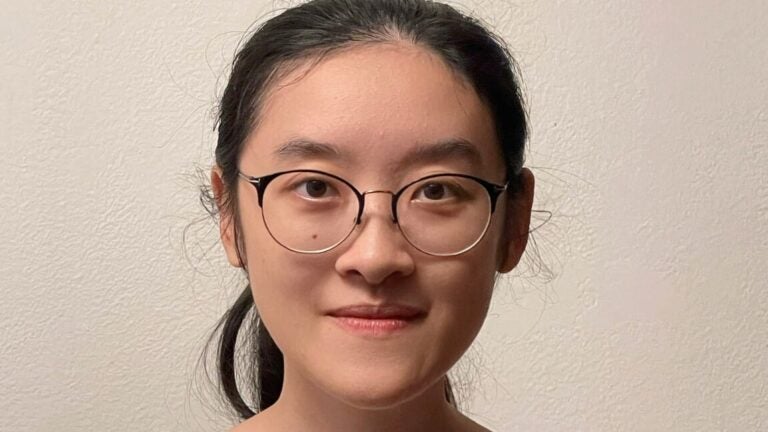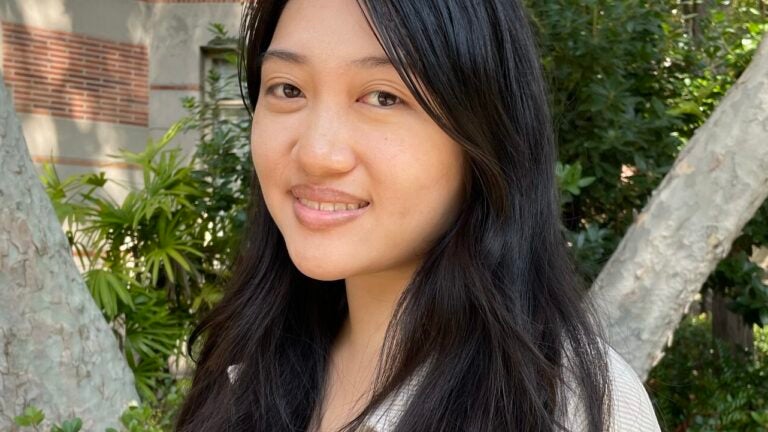Applications to start the program in Fall 2025 will open in August 2024.
View the recording of the information session held on Thursday, September 28, 2023.
For more information, please email Dr. Darren M. Ruddell, Spatial Sciences Institute Associate Professor (Teaching) and Director of Graduate Studies, at druddell@usc.edu.
“The Population, Health and Place Program really shaped me as an interdisciplinary researcher, allowing me to hone my skills and develop expertise in spatial sciences, demography, sociology and population health, and introducing me to mentors and colleagues in multiple departments and schools at USC.
This unique training has led me to awesome positions at Princeton University and the American Journal of Public Health. I’m excited to continue developing my interdisciplinary research program as an early career scholar.
Michelle S. Livings, Ph.D., Postdoctoral Research Associate, Center for Research on Child and Family Wellbeing, Princeton University
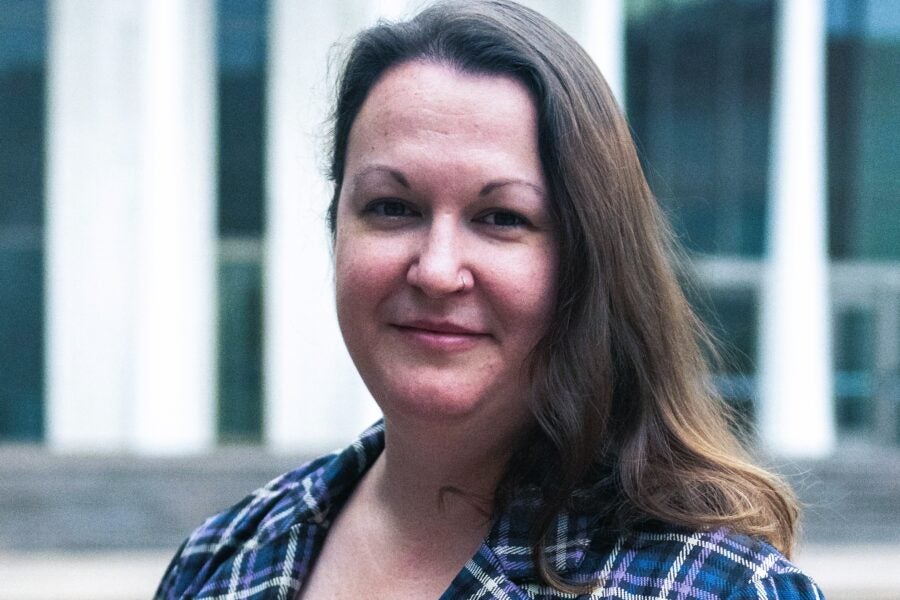
Meet our doctoral candidates and students
These front-line scholars are tackling issues of global health signficance
FAQ
-
Those interested in:
- conducting research and creating policies and programs needed to promote human well-being and sustainability in the academic, public, private, and not-for-profit sectors;
- developing versatility with large data sets and varied modeling and computation approaches and applying them to population and health problems in meaningful and predictive contexts;
- becoming faculty in research universities; or
- working as researchers and policy officials in social- and health-related government agencies and NGOs.
-
- Official Transcripts: Official transcripts from all colleges and universities attended, sealed by the institution. Mail transcripts to: USC Graduate Office of Admission University Park Campus Los Angeles, CA 90089-0915.If sending via a private carrier (e.g., UPS, FedEx, or DHL), send transcripts to: University of Southern California Office of Admission & Financial Aid 3601 South Flower Street Tyler 1 Los Angeles, CA 90089-0915. For more information regarding transcripts visit USC Graduate Admissions Office – Transcript Requirements.
- Resume/CV.
- Official GRE Test Scores: required for admission, but there are no minimum score requirements.
- Writing Sample: should be academic and should demonstrate your ability to clearly articulate research you’ve completed in other programs. Documents prepared for previous courses are ideal.
- Statement of Intent: should explain your reasons for applying and what you hope to accomplish while enrolled. It should also demonstrate an understanding of the interdisciplinary nature of this program and incorporate that in an explanation of your research goals.
- Published Work: is not required for admission but you may use the other section to upload publications if you would like them to be considered.
- Letters of Recommendation: letters of recommendation from sources who can confirm your ability to work effectively at the graduate level. Former professors, teachers, employers, and/or research leads are preferred. Please submit at least 3 letters.
Application Materials for International Applicants:
English Language Proficiency:
- International students applying to graduate programs at USC are expected to demonstrate adequate English language proficiency to be considered for admission. Check out this page on how to satisfy this requirement.
- We also recommend you review our video tutorial titled, “English Proficiency Requirements for International Students” for more details.
-
This program at the University of Southern California offers the students of doctoral programs a highly competitive five-year support package that provides an annual stipend, tuition, health and dental insurance, and various university fees.
The first and fifth year are funded by fellowships, with the second, third, and fourth years funded by research assistantships and/or teaching assistantships.
The benefit of this approach is that you are relieved of research and/or teaching responsibilities in your first year to concentrate on your coursework and on developing your dissertation topic, and in your fifth and final year to concentrate on completing your dissertation for our doctoral programs.
-
Each student must take at least 44 substantive units in sociology (population), population and public health sciences (health), and the spatial sciences (place) at USC during the first three years. During the first and second year, students work on either a refereed journal article, book chapter or a research report of comparable scope and quality.
After students complete the two core courses, SSCI 600: The Geography of Life and Death and SSCI 601ab: Population, Health and Place Research Practicum, students have a wide choice of courses from which they can satisfy the remainder of their course work.
Choices include courses in preventive medicine, sociology, and spatial sciences, as well as other schools and departments throughout USC which offer graduate courses.
Students complete two research rotations as well as courses in biostatistics, demography, epidemiology, and spatial sciences, with additional course work required according to specialty area and/or dissertation topic.
-
The screening takes place in the second year and is based on an evaluation of the student’s performance in courses and on an evaluation of the student’s research competence as reflected in the first- and second-year research project, from which either a referred journal article, a book chapter or a research report of comparable scope and quality is expected to emerge.
The screening committee is comprised of the student’s co-advisers and two other members of the faculty.
-
In preparation for the qualifying examination, each student assembles a five-person guidance committee to direct the student’s program of studies and evaluate research competence at least one semester before the student takes the qualifying examination. The committee must include at least one member from the list of eligible faculty in Demography, Health and Spatial Sciences.
The qualifying examination evaluates the student’s ability to conduct independent scholarship and research.
The student is evaluated based on an oral and written presentation of (1) a written review paper or written exam, and (2) the dissertation proposal.
The qualifying examination is planned, administered and evaluated by the student’s guidance committee.
It should be taken no later than during the spring semester in the second year of the program.
-
Students need to present their dissertation proposal at their qualifying examination.
It is recommended that students decide their dissertation topics by no later than the end of fall semester in the second year of the program.
-
The best dissertation topics for this program will draw on and use concepts and methodologies from all three of these contributing disciplines and look to advance our knowledge of some aspect of human health and well-being.
Many of the faculty with the Population, Health and Place doctoral programs have active funded research projects with opportunities for students working at the intersection of population science, public health and the spatial sciences.
One of the first goals for students admitted to the program will be to gather information so they can assess whether or not there are opportunities that align with their goals and aspirations.
We also anticipate that some students will propose their own topics and come with the goal that they will build support among one or more faculty to join them in their work while they pursue their doctoral programs, and we support such an approach.
-
Applicants are encouraged to specify as a part of their application one or more faculty with whom they would want to work during this doctoral program, as this information may help us clarify the faculty’s availability at the beginning of a student’s doctoral studies.
Applicants do not need to contact PHP faculty prior to admission.
Students admitted to the program will work with the director of the program and the director of graduate studies to identify a list of possible advisors early in their first year of study. Students will have two co-advisors, with the goal that these advisors are identified by the start of the fall semester in the second year of the program.
Learning objectives
- Construct and apply qualitative and quantitative approaches for mapping and modeling how genetics, the environment, and human behaviors influence human well-being.
- Construct and evaluate integrated applications that combine geospatial data and applications for processing that data.
- Apply appropriate and relevant spatial analysis techniques to address spatial health problems.
- Critically evaluate the types of models that will be required in the future to effectively manage land, water, air and biotic resources, assess environmental risks, and promote human health and well-being.
- Execute research, communicate and analyze research findings in social demography and the value of demographic perspectives for the analysis of population change and human well-being.
- Select, apply and evaluate statistical methods in clinical, public health, epidemiological, and experimental research.
- Produce a publishable-quality manuscript(s) on research findings that includes stating a problem and research question, identifying relevant literature, detailing a methodology, reporting results and reaching conclusions.
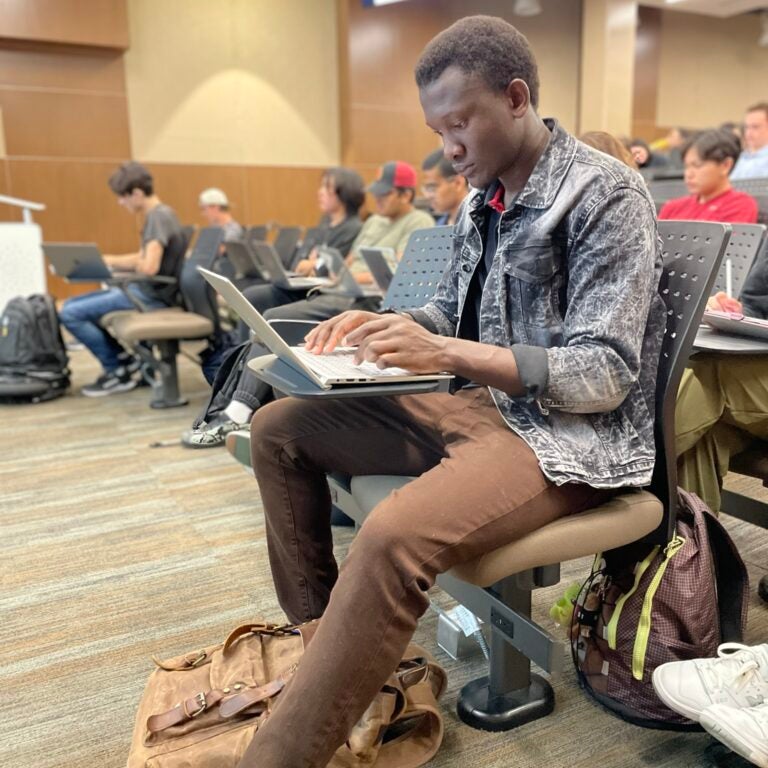
Courses
-
Meaning and significance of place and role of social, natural, and built environments in disease occurrence in different places and populations.
-
Utilizes one or more projects to examine the connections between population, health and place and how geospatial approaches to analyzing and visualizing spatial data may advance our understanding of disease systems. Prerequisite: SSCI 600. Graded CR/NC
-
The role of spatial computing in understanding the world, in knowing and communicating our relationships to specific places, and for navigating through those places.
-
Fundamentals of temporal and spatiotemporal data analysis; modern methods forevaluating, managing, and visualizing spatiotemporal data; hands-on use cases.
-
The theoretical foundations and techniques of spatial analysis and the ways in which they have been used to identify spatial processes and patterns.
-
An introduction to spatial models identifying the key issues influencing the success of these models in simulating key social and environmental processes and health exposures. Prerequisite: SSCI 680.
-
Research leading to the doctorate. Maximum units which may be applied to the degree to be determined by the department. Graded CR/NC.
-
Credit on acceptance of dissertation. Graded IP/CR/NC.
-
Concepts of biostatistics; appropriate uses and common misuses of health statistics; practice in the application of statistical procedures; introduction to statistical software including EXCEL, SPSS, nQuery. Laboratory.
-
Terminology/uses of epidemiology and demography; sources/ uses of population data; types of epidemiological studies; risk assessment; common sources of bias in population studies; principles of screening. Recommended preparation: algebra.
-
An overview of environmental health, identifying issues in assessing effects of exposure on health and potential interventions for reducing adverse health risks. Prerequisites: PM 510L, PM 512.
-
Procedures and techniques for the collection, evaluation, and analysis of demographic data; census and vital registration systems; basic measures of demographic components, and the construction of life tables and population projections. Prerequisite: SOCI 521.
-
Theoretical perspectives of population, historical and contemporary accounts of population trends and statistics, and the latest research on the causes and consequences of demographic processes.
Faculty
-
Paul S. Adler, Harold Quinton Chair of Business Policy and Professor of Management and Organization, Sociology and Environmental Studies: sociology of complex organizations; comparative political-economy; environmental sociology
Jennifer A. Ailshire, Associate Professor of Gerontology and Spatial Sciences: social stratification; urban sociology; health & aging; neighborhood environment & health
Timothy Biblarz, Associate Professor of Sociology and Gender Studies: family sociology; stratification & social mobility; gender & sexuality; demography; statistics
Lynne Casper, Professor of Sociology: family sociology; family demography; work, family & health; gender, work, & family; family change & variation; social demography; quantitative methods
Juan De Lara, Associate Professor of American Studies and Ethnicity: environmental justice and political ecology; race, power and data; Latinx geographies; social movements; urban political economy
Brian Finch, Professor (Research) of Sociology and Spatial Sciences: social demography; social epidemiology; social stratification & inequality; social statistics
Daniel A. Hackman, Assistant Professor of Social Work and Spatial Sciences: child and adolescent development; neighborhoods; socioeconomic disparities in health and mental health; neuroscience; stress and adversity
Jennifer Hook, Associate Professor of Sociology: gender inequality; family demography; work-family; social policy; comparative sociology
Lihua Liu, Associate Professor of Clinical Population and Public Health Sciences: demography; medical sociology; cancer surveillance; spatial distribution
Ann Owens, Associate Professor of Sociology and Spatial Sciences: spatial analysis; quantitative analysis; urban sociology; social stratification; social policy
Manuel Pastor, Distinguished Professor of Sociology and American Studies & Ethnicity: economic, environmental, & social conditions facing low-income urban communities; social movements; regional equity; social justice
Emily Smith-Greenaway, Professor of Sociology and Spatial Sciences: infant & child mortality; demography; African studies; health services -
Lourdes Baezconde-Garbanati, Professor of Population and Public Health Sciences and Associate Dean for Community Initiatives: cultural and lifestyle risk factors for cancer and tobacco control at the community level; gender and ethnic minority health; health promotion and disease prevention; community engagement
Tracy (Theresa) Bastain, Assistant Professor of Clinical Population and Public Health Sciences: air pollution exposures and respiratory outcomes; environmental health; prenatal exposures and outcomes; obesity
John Blosnich, Assistant Professor of Social Work and Director of the Center for LGBTQ + Health Equity: health services research; survey methods; health disparities and health equity; electronic medical records; suicide prevention; sexual and gender minorities (LGBT)
Ricky N. Bluthenthal, Professor of Population and Public Health Sciences and Associate Dean for Social Justice: drug use epidemiology; health inequities; harm reduction; health promotion and disease prevention; community-based participatory research
Carrie Breton, Assistant Professor of Population and Public Health Sciences: epidemiologic methods; environmental health & epigenetics
Myles G. Cockburn, Professor of Population and Public Health Sciences and Spatial Sciences: health GIS; cancer epidemiology; environmental epidemiology; melanoma; prostate cancer
Kayla de la Haye, Associate Professor of Population and Public Health Sciences: promoting public health and addressing health disparities; social networks and systems science; healthy eating; food systems and food security; early chronic disease prevention; group problem solving; team science
Genevieve Dunton, Professor of Population and Public Health Sciences: health behaviors; physical activity; stress; obesity; built environment; GPS; real-time data capture; cultural and lifestyle risk factors for cancer and tobacco control at the community level; gender and ethnic minority health; health promotion and disease prevention; community engagement
Laura Ferguson, Associate Professor of Population and Public Health Sciences: health system and health services; human rights and health outcomes; sub-Saharan Africa issues including HIV/AIDS, sexual and reproductive health, and child health
W. James Gauderman, Professor of Population and Public Health Sciences: biostatistics; cancer epidemiology; environmental & genetic epidemiology
Frank D. Gilliland, Professor of Population and Public Health Sciences: respiratory health & cancer epidemiology; adverse respiratory effects of air pollution & tobacco smoke exposures; determinants of environmental & occupational lung disease & cancer
Sofia Gruskin, Professor of Population and Public Health Sciences, Law, and Spatial Sciences: global health; health and human rights; HIV/AIDS; sexual and reproductive health; child and adolescent health; gender-based violence and health systems
Rima Habre, Associate Professor of Population and Public Health Sciences and Spatial Sciences: air pollution exposures and respiratory outcomes; use of mHealth technologies
Jill Johnston, Associate Professor of Population and Public Health Sciences and Spatial Sciences: environmental health and justice in disadvantaged urban and rural neighborhoods; community engagement with exposure and epidemiology; industrial activities and assessing exposure pathways to pollutants
Jeffrey Klausner, Professor of Clinical Population and Public Health Sciences: prevention and treatment of infectious diseases, HIV prevention and sexual health, novel treatments for syphilis, the prevention of preterm birth, and syphilis immunology
Rob S. McConnell, Professor of Population and Public Health Sciences: health effects of environmental exposures, including cardiorespiratory, metabolic & neurological outcomes in children; air pollution
Kimberly Miller, Associate Professor of Population and Public Health Sciences: pediatric, adolescent and young adult cancer survivorship; models of cancer care; area-based cancer health disparities
Joshua Millstein, Associate Professor of Research Population and Public Health Sciences: statistical methods for causal inference; permutation-based false discovery rates; methods for identifying genes involved in epistatic interactions
Maryann Pentz, Professor of Population and Public Health Sciences: community & policy approaches to tobacco, alcohol, & drug abuse prevention in youth; health promotion; disease prevention; cancer control
Dima M. Qato, Hygeia Centennial Chair and Associate Professor of Clinical Pharmacy: pharmacy access; medication adherence; health equity; pharmaceutical policy; polypharmacy; drug safety; pharmacoepidemiology
Stephen G. Sanko, Assistant Professor of Clinical Emergency Medicine and Spatial Sciences: emergency medicine; cardiovascular disease; emergency medicine services and dispatch
Jonathan M. Tan, Assistant Professor of Anesthesiology Critical Care Medicine: pediatric health systems, electronic health records, spatial analysis, health disparities, environmental exposures, clinical informatics, health economics
Jennifer Unger, Professor of Population and Public Health Sciences: health disparities; psychosocial and cultural predictors of adolescent health-risk and health-protective behaviors
Thomas W. Valente, Professor of Population and Public Health Sciences: social network analysis; diffusion of innovations; health communication; program evaluation
Mellissa Withers, Associate Professor of Clinical Population and Public Health Sciences: qualitative research; community-based participatory research; gender-based violence; global sexual and reproductive health
Lu Zhang, Assistant Professor of Population and Public Health Sciences: statistical modeling and analysis for geographically referenced data, Bayesian statistics, statistical computing, and related software development -
Guoping Huang, Associate Professor (Teaching) of Spatial Sciences: geodesign; landscape and urban planning; digital visualization
Katherine (Kate) Lester, Lecturer: geospatial methods; mental and behavioral health; suicide; homelessness; addiction; severe mental illness
Laura C. Loyola, Assistant Professor (Teaching) of Spatial Sciences: GIS; human and evolutionary biology; anthropology; remote sensing
Yi Qi, Associate Professor (Teaching) of Spatial Sciences: remote sensing; environment; sustainability; spatial data science
Darren M. Ruddell, Associate Professor (Teaching) of Spatial Sciences: geospatial technologies; climate and society; human-environment Interactions; geodesign; urban sustainability
Elisabeth Sedano, Assistant Professor (Teaching) of Spatial Sciences: urban geography; legal geography; web GIS; spatial analysis; geographies of water; volunteered geographic information; critical GIS
Jennifer Swift, Associate Professor (Teaching) of Spatial Sciences: web and mobile GIS; data modeling; geodesign
Diana Ter-Ghazaryan, Associate Professor (Teaching) of Spatial Sciences: geospatial technologies; data visualization; digital humanities; cultural geography
Robert O. Vos, Associate Professor (Teaching) of Spatial Sciences: environmental justice; industrial ecology; environmental policy; spatially-explicit life cycle assessment
Siqin (Sisi) Wang, Associate Professor (Teaching) of Spatial Sciences: GIS and big data analytics (e.g., AI, machine learning, data mining and natural language processing) to solve urban challenges, digital health geography, human mobility and migration, built environment, and human-environment interactions
John P. Wilson, Professor of Sociology and Spatial Sciences: GIS; spatial analysis; environmental modeling; exposure assessment; geodesign
An-Min Wu, Assistant Professor (Teaching) of Spatial Sciences: spatial analysis; soil science; remote sensing; environmental GIS
Scholarships, fellowships and grants
Ph.D. in Population, Public Health and Place doctoral students are encouraged to apply for external funding and receive support to prepare competitive applications.
American Association of Geographers
American Association of University Women International Fellowship
Ford Foundation Predoctoral Fellowship
Fulbright-Hays Doctoral Dissertation Research Abroad
Haynes Lindley Doctoral Dissertation Fellowship
National Science Foundation Graduate Research Fellowship Program
Paul and Daisy Soros Fellowship for New Americans
Society of Women Geographers
The Honor Society of Phi Kappa Phi Dissertation Fellowships

Talk with Dr. Darren M. Ruddell, Spatial Sciences Institute Director of Graduate Studies, about what makes the USC Ph.D. program in Population, Health and Place distinctive.
Email him at druddell@usc.edu.
